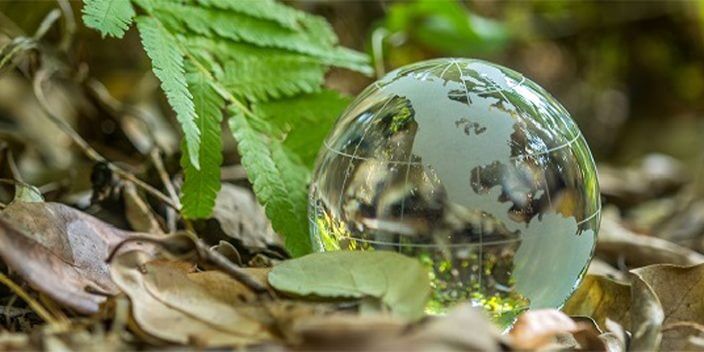Purdue institute to integrate climate and environmental studies

WEST LAFAYETTE, Ind. – Purdue University enhanced its dedication to global resilience and sustainability through the launch of the Purdue Institute for a Sustainable Future, a new interdisciplinary research organization focused on climate, environment and food-energy-water security research.
The new Institute for a Sustainable Future will integrate the ongoing interdisciplinary research strengths of two university centers, the Purdue Climate Change Research Center and the Center for the Environment. It further galvanizes Purdue’s internationally recognized research in these critical areas while enhancing opportunities for transdisciplinary collaboration and partnership.
The integration aligns complementary research while creating opportunities through shared infrastructure and instruments, collaborating on funding proposals and reaffirming Purdue’s pledge to use pioneering research to pursue answers for critical problems around the world.
“This institute signals our firm commitment to be at the forefront of innovative research and solutions to pressing global challenges in the areas of climate change, the environment and sustainability,” said Theresa Mayer, executive vice president of research and partnerships. “Through this institute we will create opportunities for our researchers to engage in large-scale projects aimed at developing a sustainable, resilient, and prosperous future.”
The institute will foster and promote research, partnerships, and engagement to overcome factors that threaten the sustainability of the global climate and environment. It will build on extensive new knowledge produced by hundreds of faculty researchers who have worked, and who continue to work, collaboratively with support from the previous centers. The new institute and its staff will continue to link faculty and disciplines in novel ways and pursue new opportunities, within Purdue and beyond. In addition, it will advance Purdue’s central Land Grant mission to build human capital, advance research, and forge outside partnerships to solve the world’s most important problems.
Key challenges include these current national funding priorities:
• Supporting health among people and ecosystems
• Ensuring clean air and water
• Bolstering resilience to climate change impacts
• Reducing greenhouse gas emissions
• Increasing environmental justice and equity
• Maintaining sustainable economic growth.
The two centers which will now work together in the institute have previously distinguished themselves through globally significant work. For example, the Purdue Climate Change Research Center has been engaged in projects including:
• The use of soundscapes data collected between March 2017 and January 2018 to study the impact of Hurricane Maria on coral reef and dry forest ecosystems in Puerto Rico.
• The exploration of how, and in what ways, indigenous peoples, as marginalized actors in international politics, influence global environmental governance.
• Research showing how residents of Escambia County, Florida, who moved away during the years that followed a major flood, chose various new destinations based on both income and race.
The Center for the Environment has been a resource for incubating and promoting collaborative, interdisciplinary research designed to solve some of the greatest global challenges to the environment. Among its work are projects to:
• Understand the fate and transport of new chemicals in the environment.
• Maintain and support global biodiversity.
• Understand and overcome the challenges to building and maintaining sustainable communities.
The new institute’s director is Matthew Huber, a professor of earth, atmospheric and planetary sciences who previously served as director of the Purdue Climate Change Research Center. As a leading global-warming researcher, he said he is enthusiastic for the institute to coalesce and build on the centers’ excellent achievements.
“This is a huge opportunity for us as a university,” Huber said. “There’s so much that needs to be done in water security, deep carbonization, climate change and human health, and in the environment — the list goes on. There are so many things that we desperately need to provide people with solutions for. And with the strengths Purdue has, we’re in a really good position to provide those kinds of solutions.”
As it pursues those results, the institute will also catalyze the process for carrying fundamental and use-inspired research toward commercialization.
Writer: Amy Raley, araley@purdue.edu
Media contact:
Source: Matt Huber, mhuber@purdue.edu